This session aims to create a space for open discussion and networking for early career scholars (PhD students and postdoctoral researchers). Organised by three advanced scholars with strong expertise in web archives, this 90-minute session will focus first on the role and place of web archives in research, including how case studies, close and distant reading, and different tools and methods may be used, refined, and presented in research. Questions about access, ethical and legal issues will also be addressed, based on concrete needs (copyright, anonymisation of research results, FAIR Data, and so on).
The session will then move on to more general questions related to academic careers, strongly keeping in mind the research areas of participant scholars in web archive studies. The topics to be considered will include: opportunities for funding; relevant journals and strategies for publication; avenues for promoting and disseminating research to both academic and public audiences, participation of the general public, including social networks, the main conferences related to web archives, and other forums; issues of inclusivity and diversity facing researchers in the field, etc.
Collectively, the organisers of this session combine a wide range of disciplinary and professional perspectives, knowledge of different national and international contexts, and diverse skillsets and expertise. They have also had varying career trajectories, and in particular have come to working with web archives via different routes and with differing but complementary motivations. Consequently, the session will be of relevance to researchers and practitioners from within and outside Europe; from the humanities, social and computer sciences; and from both universities and the cultural heritage sector.
The session will strongly focus on the needs and adapt to the requests of participants, in order to align closely with the challenges that early career scholars face in our area. With this first session of mentorship, we hope to set a precedent which might lead to the establishment of a regular session at the RESAW conference. It will also facilitate the development of a peer network among the attendees, who may develop their research and build their professional networks alongside each other in future years.

 PDF version
PDF version
